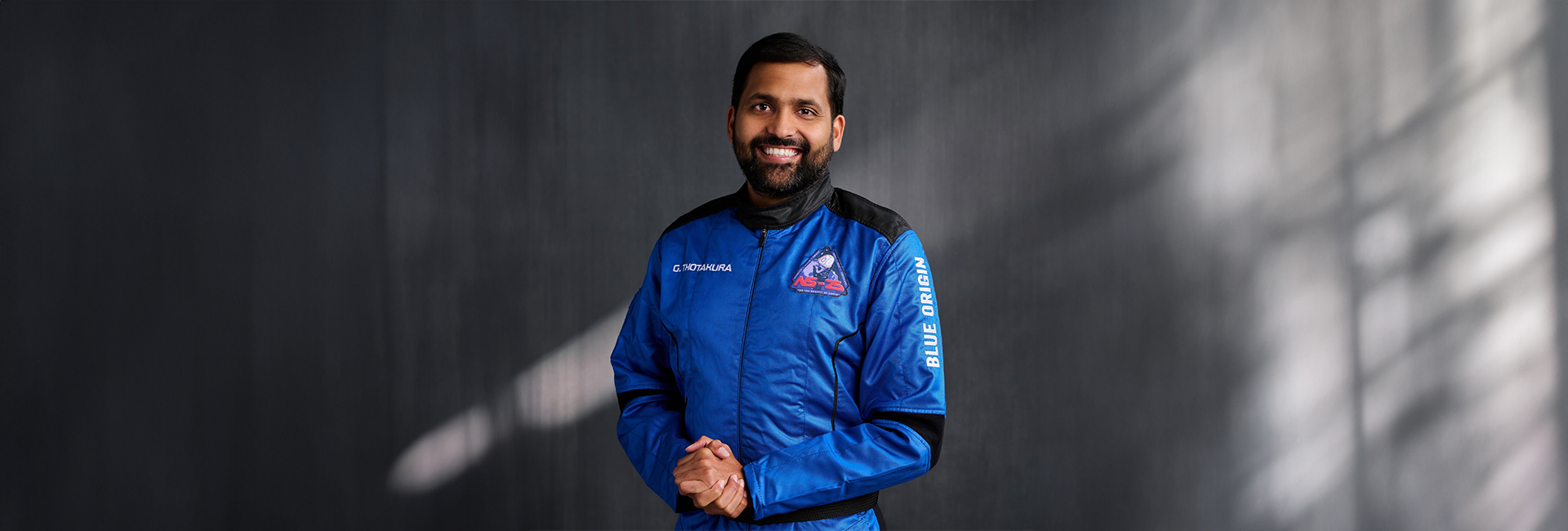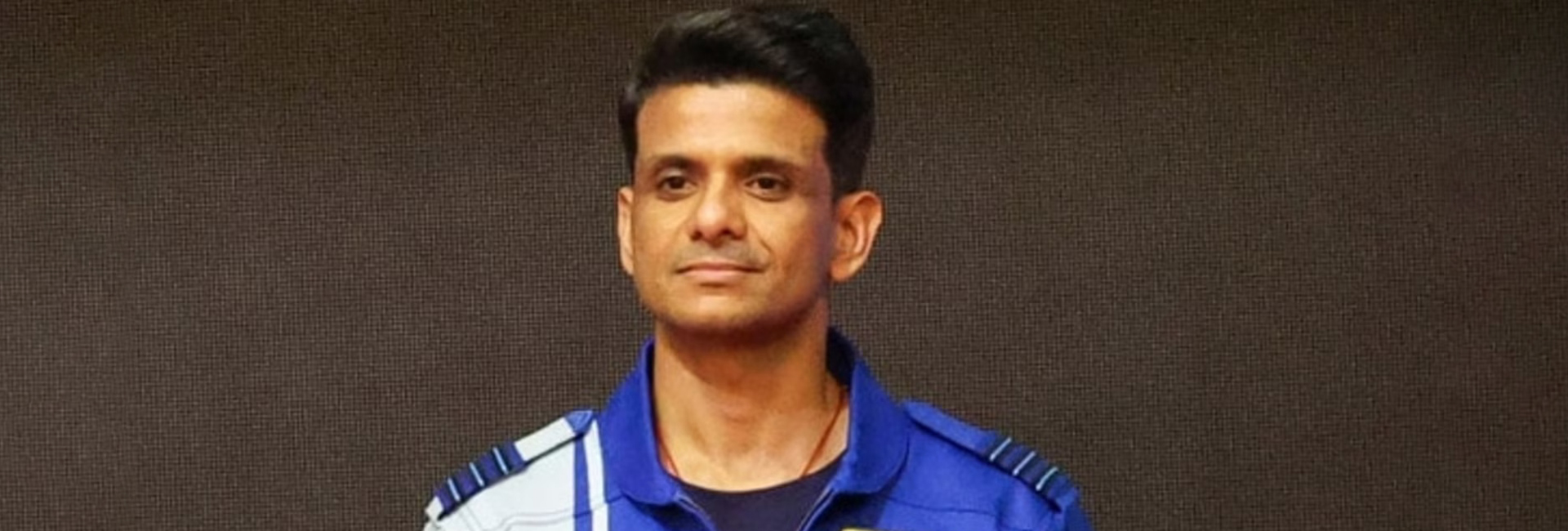(September 13, 2024) The ‘majestic blue ball’ is how Gopichand Thotakura described Earth as he saw it for the very first time from space. The 30-year-old scripted history by becoming the first Indian space tourist as he took off in Blue Origin’s New Shephard from a private ranch in West Texas a few months ago. He was the only Indian among the six-member crew that left for Earth’s gravity. “Every Indian needs to go to space to see what it looks like,” he said in an interview, adding, “I cannot describe it, it has to be seen, it has to be lived in the moment, and then it will change you forever.”
Gopichand is behind the creation of Preserve Life, a wellness centre worth millions, which is taking shape on the outskirts of Atlanta, USA. It was last year that he became a part of Blue Origin’s NS-25 mission, becoming the second Indian chosen for a space mission after astronaut Rakesh Sharma. Recalling his 11-minute space flight experience, he said, “The experience is indescribable, an exhilarating journey of weightlessness and awe-inspiring views. And I didn’t realise it until I got the first glimpse of the curvature of the majestic blue ball, and then I realised that we are missing on something, it is to realise how fortunate we are to be living, standing, playing, sleeping here on this planet.”
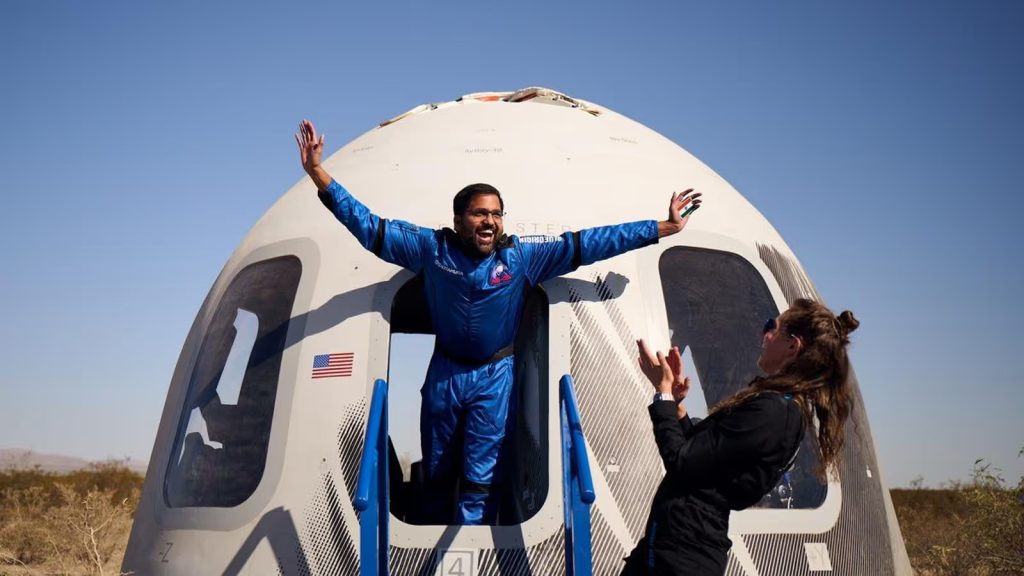
Gopichand Thotakura returns to Earth
Love for aviation
The Vijayawada-born relocated to the US to pursue business opportunities after Covid-19 hit people worldwide. “My roots remain firmly Indian, with my family, schooling, and early career all in India,” he told a daily. Growing up, he pursued schooling in various Indian cities, owing to his dad’s business travels. This exposed him to varied cultures and he found his love and passion in aviation. However, it was while flying in KLM Royal Dutch Airlines that he first visited a cockpit, which gave him the idea of becoming a pilot. To translate his dream into reality, he ended up enrolling in aeronautical science at Embry-Riddle Aeronautical University in Florida, USA.
Pursuing his passion, he became both a medical and commercial pilot, flying a range of aircraft, including vintage World War II planes. It was in the US that he undertook training, and after five years, he returned to India and moved into medical evacuation. Back in 2010, he always aspired to go to space. “This meant either going via NASA or being a U.S. citizen and these were barriers for me. Blue Origin opened up opportunities,” he said.
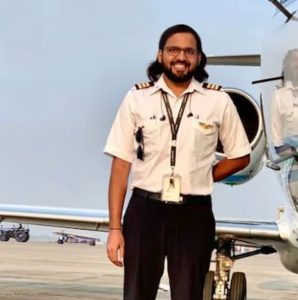
Visiting space as a tourist
So, when the opportunity for travelling to space as a tourist showed itself, Gopichand grabbed it with both hands. “I was hell bent on getting aboard a manned mission. It is a desire to carry Indian blood (ethnicity) to space.” But it did require the crew members to undergo training – physical as well as mental. “Can you handle the shock? The awe? The potential for freezing under pressure? These are just some of the considerations.”
However, Gopichand believes that more than the resources, it’s determination that people need so that they can work on their dreams. But he equally emphasised how governments, investors, and private venture capitalists can play a big role in sending more people to space. He is of the opinion that India has made its mark in space exploration by successfully landing Chandrayaan-3 on the moon’s South Pole at a fraction of the cost compared to agencies like NASA. “We don’t need foreign agencies. We have agencies in India that can buy foreign agencies that are investing. By bridging the gap between innovative minds and entrepreneurs, India can surpass expectations,” he said.
The entrepreneur and pilot, who returned from his maiden flight, can’t emphasise enough the importance of space tourism. “Experiencing space firsthand is essential to truly understand its importance. You need to go up there to see what it looks like. And unless you do it, no movie or no globe on your desk will ever be able to convey its importance to you.”
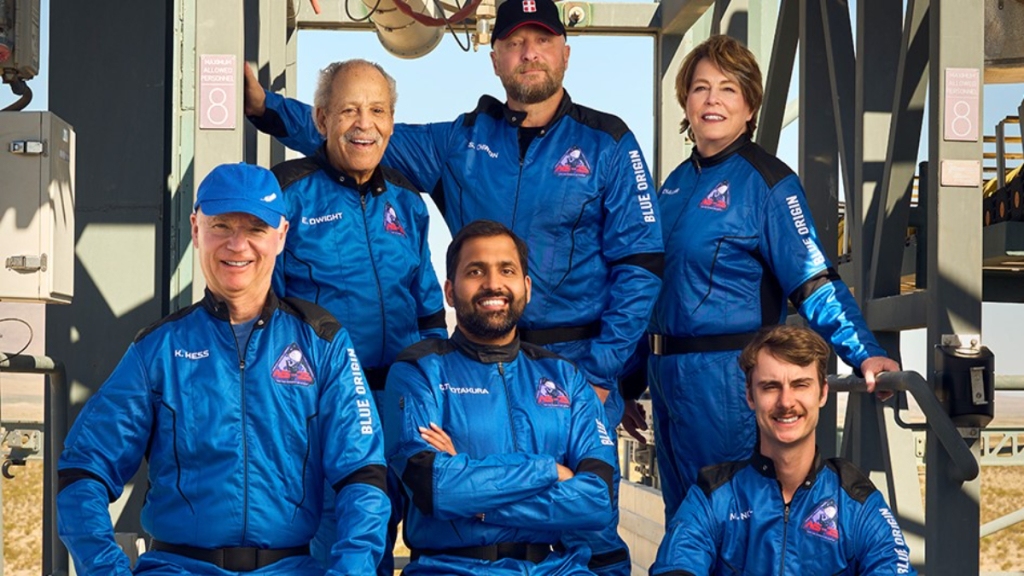
The six-member crew of NS-25 mission
Space tourism
Space tourism is rapidly emerging as a new frontier in human exploration, offering ordinary people the opportunity to experience the wonders of space firsthand. With companies like Blue Origin, SpaceX, and Virgin Galactic spearheading commercial space travel, the once-unimaginable dream of venturing beyond Earth is becoming a reality, and Gopichand is proof of it.
The development of reusable rockets and advanced technology has significantly reduced the cost of space travel, making it more accessible to those outside of government space programs. This burgeoning industry not only fuels curiosity and innovation but also has the potential to inspire future generations to explore the unknown and push the boundaries of human achievement. As more private companies invest in space tourism, the dream of making space a regular travel destination draws nearer, expanding the horizon for human experience and understanding.
His dad always pushed him to dream big, and he wants more people to chase after their dreams. “I want to show that you have to have a dream and it is not really important if you are a scientist, engineer or a pilot to be able to go to space,” the Global Indian said.
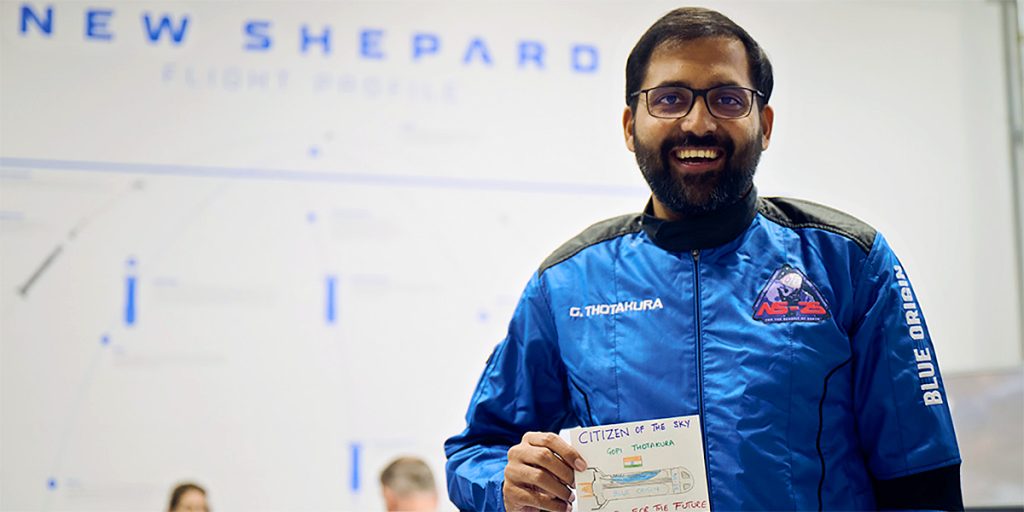
Gopichand Thotakura is a trailblazer in this new era of space tourism, becoming the first Indian space tourist and inspiring others to follow suit. From his roots in aviation to his ventures into wellness and space travel, his journey embodies the power of ambition and perseverance. His spaceflight experience, combined with his entrepreneurial spirit, reflects his desire to bridge the gap between dreams and reality.
- Follow Gopichand Thotakura on Instagram
Read a similar story of Tushar Shah, India’s second space tourist on a Blue Origin mission to the stars.
